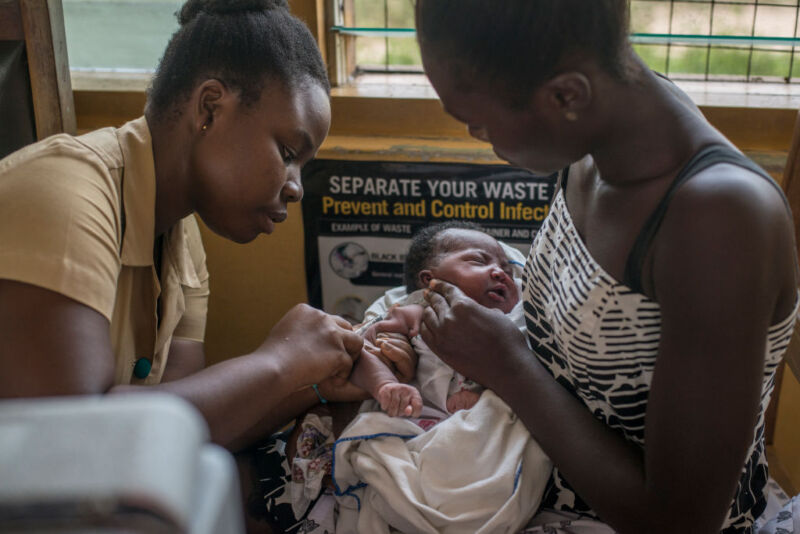
Enlarge / A nurse administers the RTS,S vaccine. (credit: CRISTINA ALDEHUELA / Getty Images)
On Wednesday, the World Health Organization (WHO) announced a first: it was recommending a vaccine against malaria for administration to children. The decision follows a program started in 2019 in three African countries, which eventually saw over 800,000 children vaccinated.
The vaccine itself is called RTS,S/AS01, or Mosquirix, and it checks all the boxes for conspiracy theorists, having been developed by a large pharmaceutical company (GlaxoSmithKline) with support from the Gates Foundation. The vaccine is based on proteins found on the surface of the most common malarial parasite, and it requires four doses starting when children are less than a year old. Development of the vaccine started in 1987, and testing of its efficacy dates back to 2014. With over 2.3 million doses administered, it has a solid safety profile, and it has shown an efficacy between 30 and 50 percent in different trials.
That may not seem all that great, especially compared to the numbers we’ve all watched many of the COVID-19 vaccines produced. But the WHO estimates that over a quarter-million children under the age of 5 die of malaria every year in Africa alone, with many others falling seriously ill. As such, even a 30 percent efficacy can have a substantial impact.
